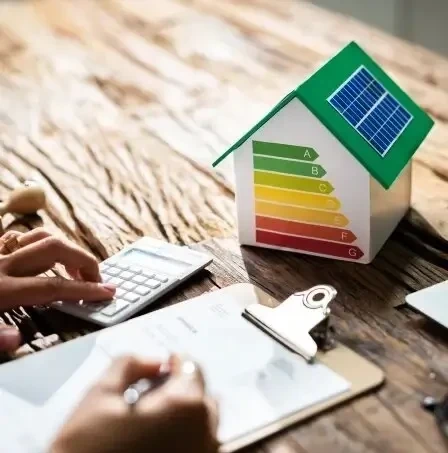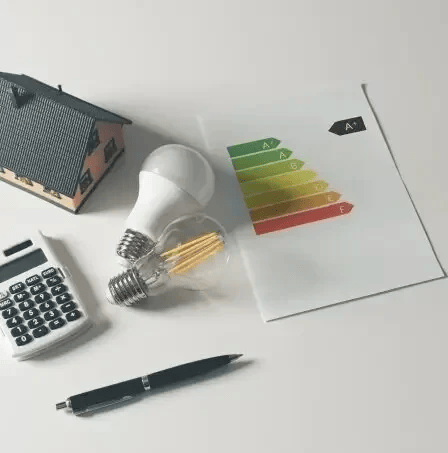The UK government has established the goal of decarbonising all components of the UK economy by 2050. To help achieve this goal various energy saving schemes aimed at UK home and business owners have been established. In this guide, we look at 5 energy saving schemes that can help you pivot toward a more sustainable energy future.
ECO4 is descended from a £4 billion programme initiated in 2013 that compels energy suppliers to offer grants to some of the UK’s most vulnerable people in order to address fuel poverty and reduce carbon emissions from their homes. The name of the programme stems from the fact that energy companies are obligated to offer these grants. Should they fail to do so they will face significant fines.
Key Features of the ECO4 Scheme
Energy efficiency: Energy suppliers are required to achieve specific energy efficiency targets based on the size of the supplier and how many customers they serve. The primary method of achieving these targets is to offer customers grants to reduce the amount of energy their homes consume.
Eligible homes: ECO4 is intended to assist low-income households who might not otherwise have the financial wherewithal to pay for much-needed energy efficiency upgrades. A variety of criteria are applied to determine if the homeowners qualify for ECO4 grant money.
Eligible measures: Homeowners can receive grant money under the ECO4 scheme to pay for a variety of energy efficiency measures including upgrading their loft insulation and cavity wall insulation, upgrading their heating system or installing renewable energy systems such as air source heat pumps.
The Warm Home Discount Scheme provides a one-time payment to low-income households to help them cope with their energy bills. Eligible households who are customers of participating energy suppliers receive the payment automatically:
Key Features of the Warm Home Discount Scheme
Participating energy suppliers: Most, but not all, of the larger energy suppliers in the UK participate in the Warm Home Discount Scheme. Each supplier is allowed to establish their own eligibility criteria so it is vital to check with the supplier to see if your household is eligible.
One-time payment: The one-time payment associated with the Warm Home Discount Scheme usually takes the form of a discount applied to the household electricity bill. The exact amount of the payment/discount varies from year to year due to fluctuating energy costs.
Eligibility: Whether a household qualifies for the WHD Scheme depends on them meeting certain criteria which include being in a vulnerable position due to disability or long-term illness or receiving certain means-tested benefits such as Income Support.

The Renewable Heat Incentive Scheme provides financial incentives for businesses and homeowners to install renewable energy generation technologies such as solar heat, biomass boilers and air source heat pumps.
Key Features of the Renewable Heat Incentive Scheme
Eligibility: Eligibility of a home or business owner for the RHI Scheme depends on the type of technology they install, the scale of the installation and whether the installed technology meets certain energy efficiency standards. In some cases, certified installers must be used.
Eligible technologies: The RHI covers a variety of renewable energy technologies including biomass boilers, ground source heat pumps, air source heat pumps and solar thermal systems that capture heat from the sun to use to heat water or warm a space.
Payments: Under the RHI Scheme eligible home and business owners receive regular payments for the amount of heat their system generates. The size of a payment depends on the amount of heat put out and is calculated using predetermined tariffs specific to a given technology.
Unlike some other energy saving schemes the ESOS is mandatory for organisations that meet the qualification criteria. If an organisation qualifies for the ESOS scheme they must carry out ESOS energy audits every 4 years. The goal of the audit is to identify measures that will allow participants to reduce their carbon footprint while saving energy and money.
Key Features of the ESOS
Eligibility: Businesses automatically qualify for the Energy Savings Opportunity Scheme if they employ more than 250 people, if their annual turnover is more than £44 million, if they are part of a larger corporate entity with more than 250 employees or £44 million in turnover, or if they are an overseas-based organisation with more than 250 UK employees.
Increased profitability: The ESOS will typically enable a business to become more profitable by identifying energy waste and reducing the company’s energy bills. It is estimated that yearly savings for qualifying businesses add up to £1.6 billion.

The Boiler Upgrade Scheme is a central component of the government’s Net Zero Strategy. It is designed to promote the transition from standard boilers that rely on fossil fuels to more sustainable alternatives. It does that by providing rebates intended to offset the installation cost of those sustainable technologies.
Key Features of the Boiler Upgrade Scheme
Programme eligibility: To be eligible for the Boiler Upgrade Scheme your home must be in England or Wales and must be privately owned by the person applying for reimbursement. The property will also need a valid Energy Performance Certificate with no black marks for lack of proper insulation.
Available funding: The Boiler Upgrade Scheme provides up to £7,500 to offset the installation cost of renewable technologies. That money goes to the installer of such technologies who then accounts for it on their quotation, deducting it from the installation cost.
Eligible technologies: Sustainable technologies that are eligible for Boiler Upgrade Scheme rebates include air source heat pumps, ground source heat pumps (including water source heat pumps) and biomass boilers.
For certain energy saving schemes such as the Boiler Upgrade Scheme, you will need a valid Energy Performance Certificate. You can get one by contacting EPC today on 0203 397 8220 or by completing the contact form on this website.
